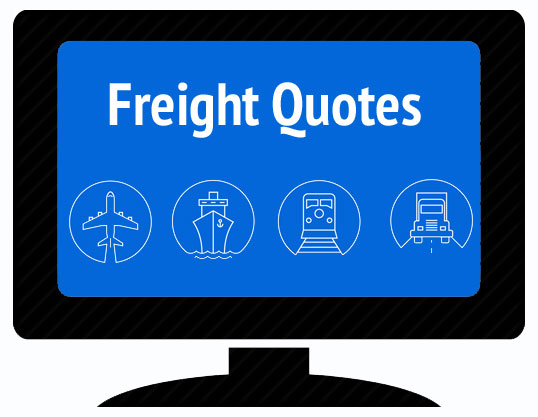 Time and accuracy are both important when it comes to shipping. That’s why it’s important to provide correct and accurate information when requesting freight quotes for transportation services. If you’re shipping LTL, truckload, expedited, or international, here are some general guidelines to help ensure you receive a prompt and precise rate estimate from your freight broker or freight forwarder.
Time and accuracy are both important when it comes to shipping. That’s why it’s important to provide correct and accurate information when requesting freight quotes for transportation services. If you’re shipping LTL, truckload, expedited, or international, here are some general guidelines to help ensure you receive a prompt and precise rate estimate from your freight broker or freight forwarder.
Know what you are shipping and be clear about it.
This seems obvious, but it is surprising how many people try to get freight quotes without providing specific details on what it is they’re shipping. The commodity type and description matter. Special rules apply to certain raw materials, or items that may be imported or exported. Household goods and used products have different limitations on insurance and which carriers have authority to handle the shipment. Less-than-truckload (LTL) shipments have very complex and detailed freight classifications and density rules that may impact how your shipment is rated. So provide this detail up front if you can (in fact, if you already know your NMFC item number or your HTSUS code, go ahead and provide it in your quote request).
Know the size, weight and dimensions of your shipment.
Your shipment dimensions and weight should include whatever packaging is used to ship your goods, e.g., cartons, pallets, totes, etc. Having accurate weight and dimensions will avoid inspection and reweighing fees, and messy invoice corrections down the road. Weight and size are also particularly important for air freight shipments. Air freight prices are based on weight and size while ocean freight prices are generally just based on size.
Know where you are shipping to and from.
Again, this sounds obvious, but in the world of domestic freight shipping, it’s important for the carrier to know whether they are picking up at, or delivering to, a place of business or a residential location. Shipments to special locations, e.g., airports, container freight stations, convention centers, grocery warehouses, etc., may also require additional services or fees. When it comes to international shipping, your freight forwarder will need to know if your import or export is being shipped door to door, door to port, port to port, port to door. Being ready with addresses for the pickup and delivery locations is the best way to get the most accurate freight quote and service estimate.
Request your freight quote close to when you are shipping.
Transportation rates are very volatile with variables such as fuel costs, available capacity, and shipper demand. These variables are often not fully known until closer to your actual shipment date. Unless you’re a giant shipper like Walmart or Costco, you’re dealing with a constantly changing spot market for transportation rates. Even if you have negotiated LTL or truckload transportation rates, you will still be subject to weekly fuel price changes. As a rule of thumb, freight quotes for LTL or truckload shipments are generally good for about 7 days; whereas, freight quotes for air or ocean shipments are good for about 30 days.
If you’d like a free freight quote from the award-winning transportation and logistics team at Logistics Plus, simply click the button below. We provide quick, no-obligation freight quotes for LTL, truckload, expedited, international, project cargo, and more. Provide us with as much information as you can (the more the better), and we’ll take it from there!

